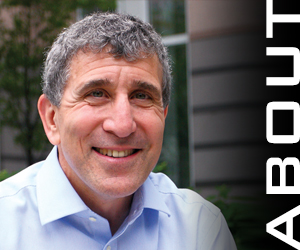Today's CPA | Spring 2021
100 Years and Counting
The CPA profession has come a long way since the first Black CPA was licensed in 1921, but there’s more progress to be made.

Todd Shapiro
ICPAS President & CEO
Inside Insights From the CEO
In 1896, the state of New York passed the first law creating the certified public accountant (CPA) designation, yet it wasn’t until 25 years later that John W. Cromwell Jr. became our nation’s first Black CPA.
Now, as we commemorate the Black CPA Centennial 100 years later, we find ourselves looking back to celebrate how Cromwell opened a door through which thousands of Black accountants would eventually pass. But I want to stress a key word in that last sentence—eventually.
It took a staggering 45 years for just the first 100 Black CPAs to be licensed. Truthfully, the progress of Black CPAs in the profession has not been without trials and tribulations. But why? Consider what’s at the core of becoming a CPA: education, experience, and an exam.
For decades, Black attendance at colleges and universities was prohibited or very limited, so historically Black colleges and universities emerged as the primary educational option, some of which lacked accounting programs.
And, of course, there’s the CPA exam. For a long period of time Black people were barred from sitting for the exam in many states.
If a Black graduate did try to enter the accounting profession, they faced yet another, almost insurmountable, barrier—many firms simply wouldn’t hire Black accountants until civil rights reform. The common excuse was something like, “We can’t hire you because our clients won’t accept you.”
Chicago firms played a major role in breaking down the experience barrier—resulting in more than one-third of the first 100 Black CPAs being from Illinois. Mary T. Washington Wylie, who became the 13th Black (and first female Black) CPA in 1943, was one driving force of that progress. She grew her own accounting and tax firm out of a South Side Chicago basement, providing countless Black accountants with the necessary work experience to earn their CPA credentials.
Our own Lester McKeever Jr. was a product of Washington’s firm, which grew into one of the nation’s largest Black-owned accounting firms as Washington, Pittman & McKeever. McKeever’s life experiences and successes inspired him to pay it forward by launching the Mary T. Washington Wylie Opportunity Fund through the CPA Endowment Fund of Illinois. The fund supports the Mary T. Washington Wylie Internship Preparation Program, which has provided training and internship opportunities to 231 Black and other underrepresented minority scholars since its inception in 2013.
As CPAs serve as protectors of the public’s interest and strategic business advisors, it’s in all of our best interest to help pave the way for more Black people and other underrepresented minorities to shape the CPA profession into one that matches the diversity of the people it serves. We are making progress—albeit slowly. In 1965, Black CPAs made up approximately 0.1 percent of total CPAs. In 2019, an AICPA survey found that Black CPAs made up just 2 percent of CPAs in U.S. CPA firms and a mere 1 percent of partners at those firms.
We, and the CPA profession, clearly still have work to do, which is why I am honored to join our organizing partners—the AICPA, Diverse Organization of Firms, National Association of Black Accountants, and National Society of Black CPAs—to bring forward the 2021 Black CPA Centennial, a year-long national awareness campaign that recognizes Black CPAs in the United States and that pushes for greater progress to be made in achieving diversity, inclusion, and equity in the CPA profession.
My hope is that our efforts to honor, celebrate, and build upon the rich history and progress trailblazing Black CPAs like Cromwell, McKeever, and Washington have made in the profession will help drive momentum, encouragement, and support for more Black people to pursue the accounting and finance profession and become CPAs.
The website www.BlackCPACentennial.cpa offers resources and information about the year-long campaign, including ways for individuals and organizations to participate.